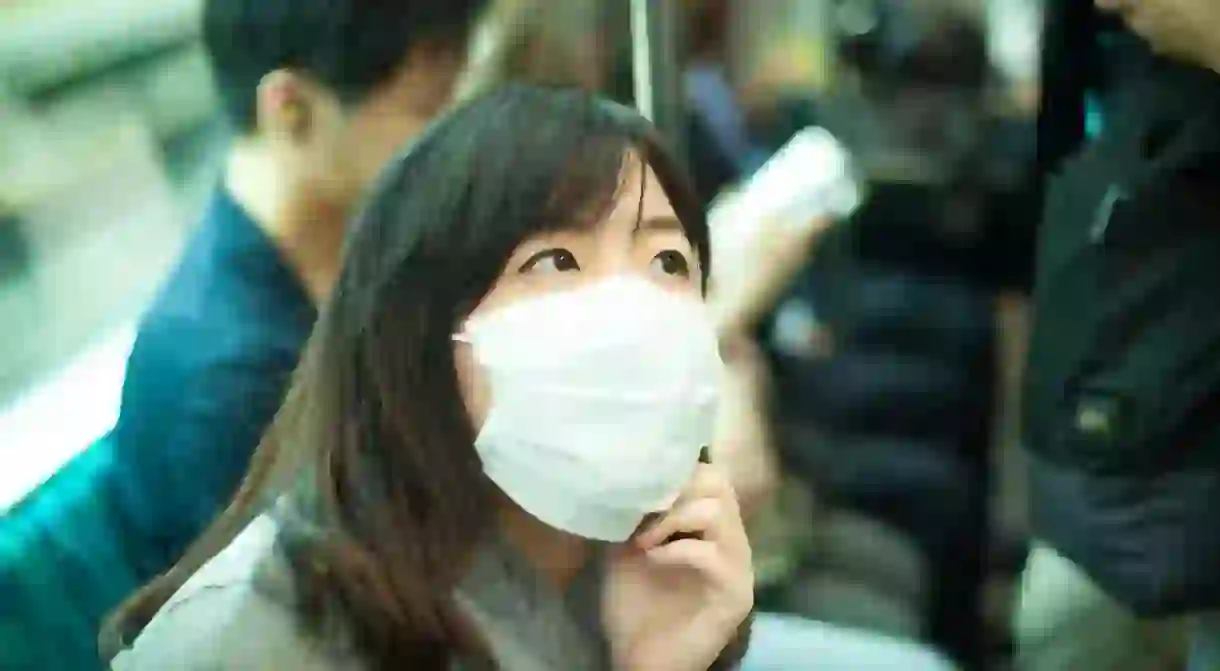Why Do Japanese People Wear Surgical Masks?

In Japan, surgical masks for the layman have quickly become a multi-million dollar industry. People may have started out wearing these face coverings for health reasons, but the masks now have a multitude of uses, the least of which is to prevent the spread of germs.
Many people assume the Japanese wear surgical masks because they’re sick, but the number one reason for wearing them is actually due to allergies. Disposable face masks marketed specifically to allergy sufferers first appeared on the market in 2003. Unlike their predecessors, these masks were cheap, disposable and easy to use. The new masks featured unwoven material, which the company claimed created a barrier to help block out pollen and other allergy triggers, making your hay fever much more bearable.

As the mask became a common sight in Japan, people began to use them for more than just cold and allergy season, however. Masks with fun patterns or brand logos turned them into a fashion accessory, and not always for show. Wearing a disposable mask has the practical use of keeping your face warm in the colder months. And no matter what the season, they can also be used as a quick cover-up when you don’t feel like showing the world your no-makeup face.

For others, they offer anonymity and a break from social interaction. By wearing a mask, you not only make yourself less approachable, but you no longer have to put effort into the interactions you do have and react accordingly with a smile, frown or laugh, because no one can see it. But although it’s possible that some people wear surgical masks to avoid interactions with others from time to time, it’s the exception and not the rule.

And, of course, people do continue to use the masks for health reasons as well. Sales jump during cold and flu outbreaks and public health scares. In high-density cities where people spend hours each day in close quarters with strangers, masks offer a bit of protection from the spread of airborne illness, and so much more.













